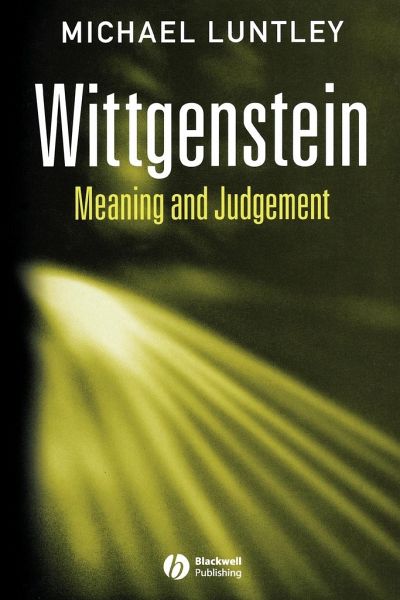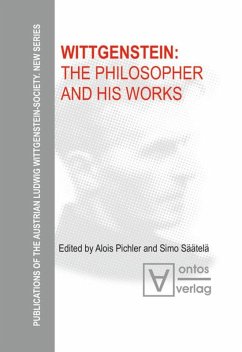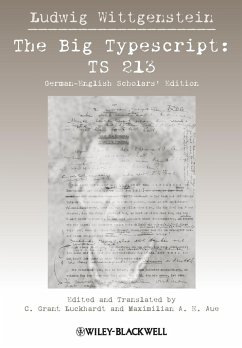
Wittgenstein
Meaning and Judgement
Versandkostenfrei!
Versandfertig in über 4 Wochen
47,99 €
inkl. MwSt.
Weitere Ausgaben:

PAYBACK Punkte
24 °P sammeln!
In this important study, Michael Luntley offers a compelling reading of Wittgenstein's account of meaning and intentionality, based upon a unifying theme in the early and later philosophies.
A compelling reading of Wittgenstein's account of meaning and intentionality.
Offers an important and original reading of Wittgenstein's key texts.
Based upon a unifying theme in Wittgenstein's early and later philosophies.
A compelling reading of Wittgenstein's account of meaning and intentionality.
Offers an important and original reading of Wittgenstein's key texts.
Based upon a unifying theme in Wittgenstein's early and later philosophies.














